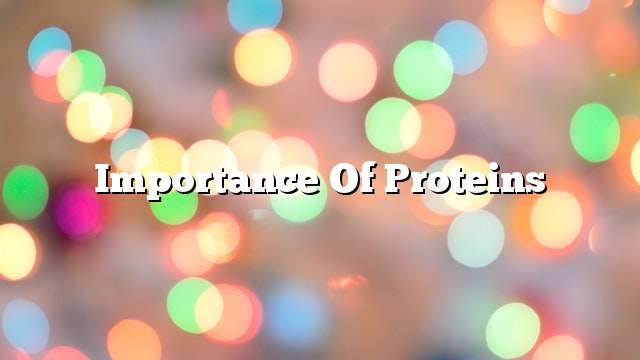Proteins
Protein is one of the important nutrients for human health, which is also needed by all living organisms. Protein is defined as a complex organic matter consisting generally of a group of chemical compounds consisting of two groups; one is acidic, the carboxyl, the other is alkaline, They are called amino acids, which bind to each other through the peptide bond, which may be ionic or hydrogen, to form a protein that is either in the shape of a ball or in the form of filaments.
It should be noted that there are some compounds in the organisms of organisms that help the process of forming protein bonds, namely DNA or DNA, in addition to the RNA is a raibose acid, and the carrier medium, which is called mRNA.
Sources of proteins
There are two natural sources for obtaining proteins:
- Animal-derived proteins: which can be obtained by eating red meat such as cows or sheep, or white meat such as chicken, in addition to that we can get them by eating eggs or dairy products, it is worth noting that animal proteins are all containing acids Essential amino.
- Proteins with plant source: These can be obtained by eating some plant or legumes such as beans, lentils, almonds, etc. It is worth noting that these proteins do not get all the essential acids.
The importance of proteins to the body
- Proteins enter into the formation of human body enzymes and other organisms, which in turn helps to carry out biological processes properly.
- Construct the outer or structural cover of all the basic cells in living organisms.
- Proteins play a large role in the growth of the body and the construction of tissues, and have a significant role in the maintenance of human health, as the lack of lead to a number of problems.
- It interferes with the composition and composition of the body muscles, and also plays a major role in helping to burn extra calories in the body.
- Not only are proteins important to humans and animals, they are also important for viruses that play a major role in the synthesis of some of the most complex form of protein, which is as high as 490 ferritic proteins.
Symptoms of protein deficiency
The lack of protein in the human body may have some problems:
- Humor, fatigue and weight loss without any effort.
- Persistent heart feeling and tension.
- Immune reduction against diseases, it will be easy to pick up any human infection.
- Protein deficiency in childhood may lead to growth problems, as well as liver or kidney problems.
- As a result of the protein binding of the body’s enzymes, this will in some cases cause a defect in the hormones.
